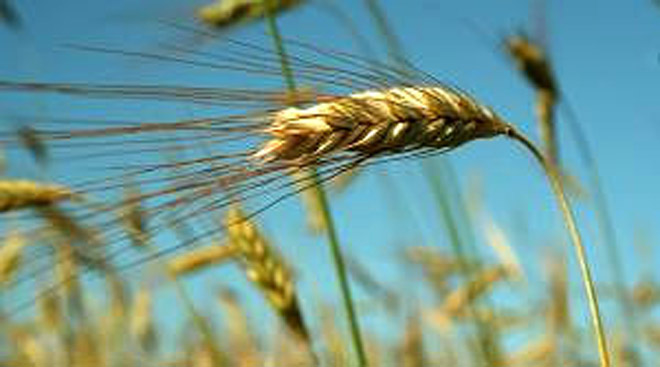Kazakhstan, Astana / corr. Trend K.Konirova / Kazakhstan is on the focus of Eurosia, which far from major sea routes of grains delivery. Several years ago it was decided to increase grains delivery to world markets via the Caspian Sea. a new terminal was built at Aktau Port, which mainly transported wheat to Iran. Over the past few years the South Caucasus countries have displayed interests in grains. The Kazakh exporters decided to use the favorable state of the market and set up grains deliveries via the Caspian to Baku.
Representatives of Kazakhstan and Azerbaijan held several meetings on the governmental level and established a joint venture. Prodkorporasia joint stock company was committed to build a grains terminal at Baku port with the discharge capacity of 500,000 tons and mill complex. Last year the terminal the terminal was pinto exploitation. The construction of a mill complex with the daily production capacity of 250 tons was launched last year.
An interview of Trend Correspondent in Astana with the President of Prokorporasiya joint stock company, Ruslan Asimov
Question: Kazakhstan's media has repeatedly reported about problems of export, inked with the insufficiency in special grains trains and extra expenses in connection with the grains transportation via the territory of neighboring countries. It seems a decision on the construction of the terminal mills in Azerbaijan was dictated by the will of resolving part of problems?
Answer: Let's begin with the fact that the Kazakhstan President instructed the agrarians to increase production to 20mln tons and enter the top five of world grains exporters. This task meets out landowners' capacity. Demand is the major factor for us and therefore, we are striving to remove problems with export. We seek and find new consumption markers, construct new export routes.
At present major part of grains is transported by railway mainly via the territory of Russia. Transit deliveries cost expensive. This is the major reason decreasing the competitiveness of Kazakh grains as compared to prices offered by Russia and Ukraine. If we deliver grains to the South Caucasus via the Caspian Sea, then we will get an alternative route and at the same time chances for choice.
We commissioned the grains terminal in Baku and plan to build the similar terminal in Poti port in 2008. Kazakhstan can enter with its grains the markets of Persian Gulf countries through Azerbaijan and Georgia, beyond the Russian territory and Russian ports. To be more correct we will have two routes. Kazakh exporters, like in the previous years, will use Russian and Ukrainian ports in the Black Sea and Azov Seas. However, during the harvesting period, when the flow from Russia and Ukraine increases, the sea terminals are overloaded. As a result, Kazakhs face with problems and the deliveries are prolonged. Therefore, we need an alternative route for export.
Furthermore, Azerbaijan, Georgia and other South Caucasus countries are prepared to import Kazakh wheat. So, the construction of terminals in Baku and Poti will enable to increase export volume of grains and flour to these countries.
Taking into consideration that cargo flows in this direction increase, we set up the reconstruction of sea grains terminal in Aktau. The discharge capacity of the terminal is expected to double this year and reach 600,000 tons. Taking into consideration that cargo flows in this direction increase, we set up the reconstruction of sea grains terminal in Aktau. The discharge capacity of the terminal is expected to double this year and reach 600,000 tons.
Question: What are expenses for the construction of the terminal?
Answer: The establishment of grain terminal in Baku cost $6mln. A Kazakh-Azerbaijani joint venture was established for the construction and exploitation of this facility on parity basis, so the expenses were divided between the countries.
At present the terminal is functioning and the first contract on supply of 50,000 tons wheat has been concluded with the Azerbaijani companies. According to specialists' estimations, the capital spent on the construction of terminal and mill complex will reimburse in 5-7 years.
Question: During the first international grains forum held in Astana representatives from Prodkorporasia joint stock company spoke about expansion of Iran ...
Answer: Iran is one of big buyers of Kazakh wheat. Therefore, we held talks and plan to build grains terminal and mill complex at the Iranian port of Amirabad in 2009. In future the Kazakh grins will run via Iran onwards the Near East in case of favorable of state of the market.
Question: How will he expansion of the exports benefit the grains sector?
Answer: It will benefit the Government, exporters and land-owners. Even now they produce large volume of grains. It is possible to judge taking into consideration the last year harvest. The expansion of the geography of export and increase of sale volumes will have a fruitful impact on the rural economy. If demand for grains increase, it will be benefit not only the land owners, but also technique suppliers and boost the remittances to the public budget.






